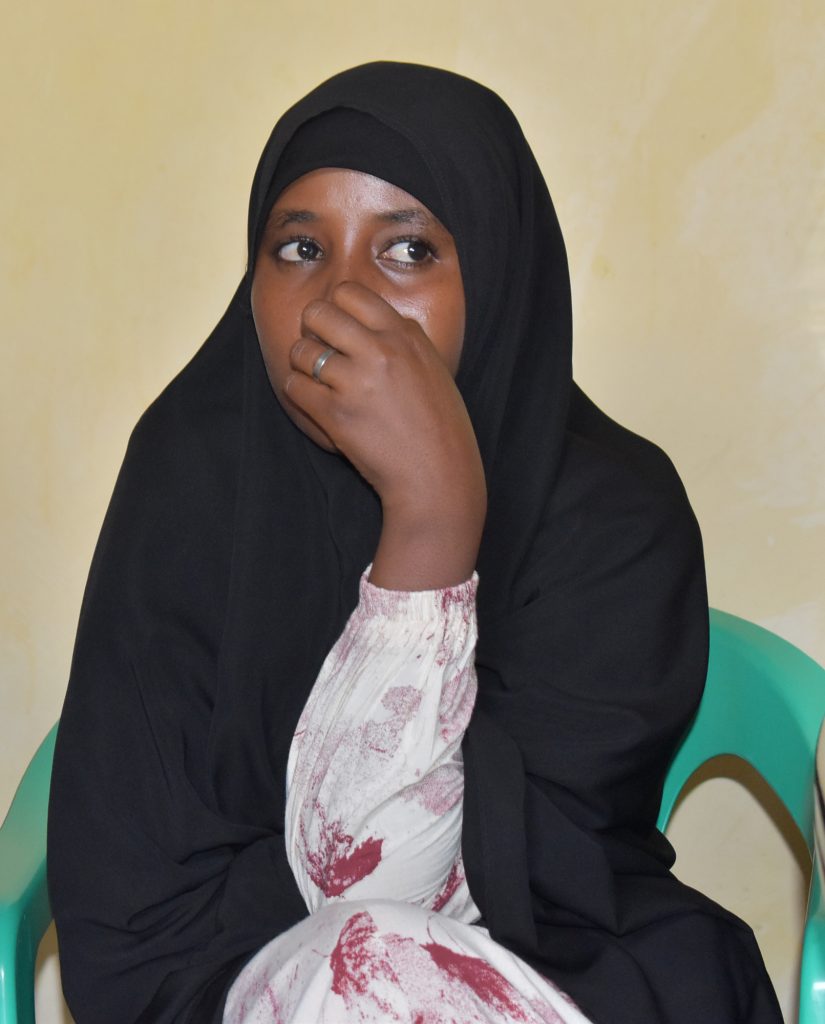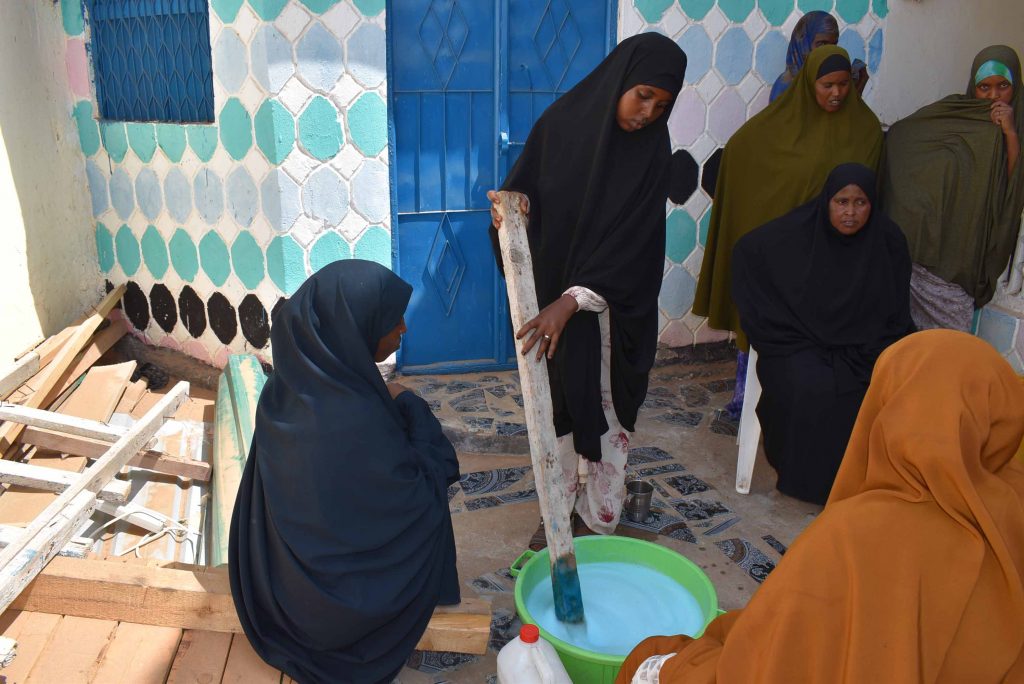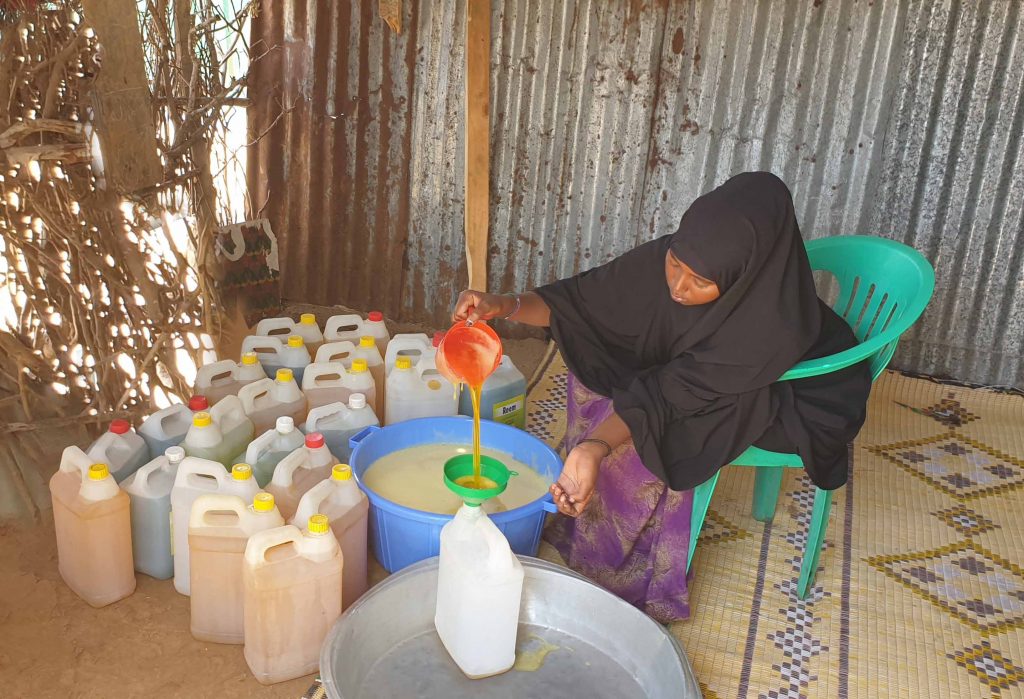
20-year-old Ayan Mohamed never thought anything would be possible. A new hope of blessing had just begun for Ayan. Sited in her makeshift workshop, she oversees the making of liquid soap. Having completed a TVET course in soap making and henna application, Ayan is now her own boss. As part of a women’s group, they make at least 40 litres of soap for sale and offer henna application when called upon.
“I didn’t have anything but looking at all these, I know it’s a blessing,” she says as she scans the jerry cans of soap that awaits to be sold.
But things were never this easy for Ayan. Getting resources to cater for her education was always difficult.
“I used to rely on relatives to give me some money to pay for my school fees, but they were also struggling to make ends meet,” she recalls.
When no opportunity came her way, she decided to help her mother in her small shop at the camp. One day she happened to hear community mobilizers talking about the Dalxiiska Training Centre and engaged them to know more about the center.
“I later went to the centre and told them my situation and I was admitted,” she says.
In collaboration with UNICEF and state authorities, ADRA through Youth Engagement in WASH Services (YEWS) project, established the Dalxiiska Training Centre in Kismayo to train youth on various courses like plumbing, hand pump and electromagnetic pump repair; solar installation and repair; latrine construction and desludging; and soap making and henna application.
Once at the centre, there was no stopping her as she delved into learning all about soap making and henna application.
“I chose soap making and henna application because there is a demand in the community for both. People use soap every day and women apply henna during weddings and festivals,” she explains.

Having graduated from the centre, her life has changed drastically. She joined a women’s group, which she now heads.
“Together with other colleagues at the training center, joined to form the Dalxiiska’s Women’s Group, which after a few months chose me to lead them. We produce 40 litres of soap every day that we sell in the community. This allows us to make an income for ourselves as well as save for the future,” she happily says.
“When I started, I had nothing. I never thought it would be possible to get an income, but here I am heading a women’s group as well as supervising the work,” she says of the impact of the training.

With the group making soap, the sales haven’t been good during this coronavirus pandemic.
“Corona has affected us, because the purchasing power of the community has been at its lowest, so we haven’t been able to sell a lot of soap as before,” she states.
Somalia reported the first COVID-19 case on 19th March. Since then, 3,051 cases have been confirmed as of 11th July. In Jubaland state of Somalia, over 200 cases have been confirmed in the same period.
Despite the pandemic, Ayan is hopeful that things will be better. Her advice to the youth is one: “don’t give up. Learn whatever you can.” She also plans to be a trainer and assist more youth in the area with the skills that she gained.
Approximately 292 youth (147 males; 145 females) aged between 15-30 years hailing from various informal IDP settlements were trained through ADRA’s programme at the Dalxiiska Training Center. The training has empowered the youth who are now gainfully engaged in the improvement of WASH services in Kismayo and other locations.
The Youth Engagement in WASH Services (YEWS) project was aimed at increasing community access to WASH services and youth engagement through water, sanitation and hygiene vocational training and work in IDP settings in Kismayo, South Central Somalia. The project targeted the great Dalxiiska IDP camp in Kismayo District with an estimated population of 52,950 persons and the outlying villages in Kismayo.



